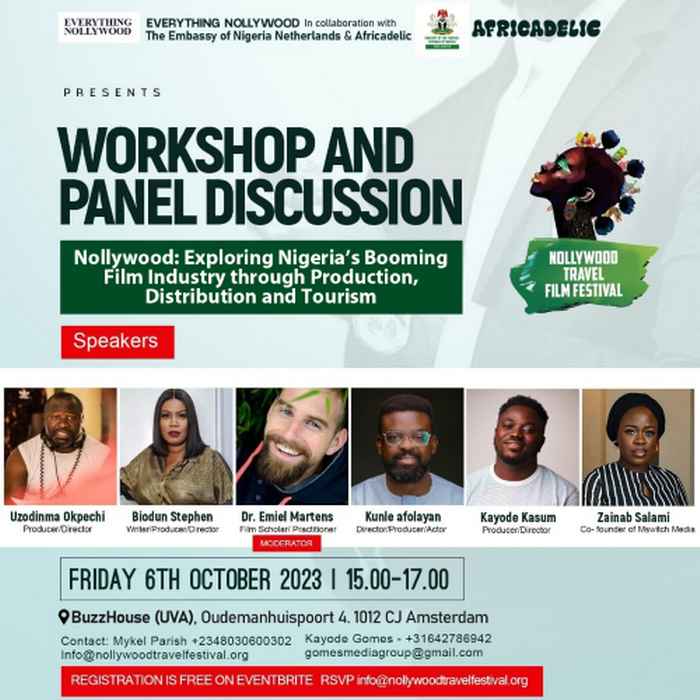Nollywood: Exploring Nigeria's Booming Film Industry through Production, Distribution and Tourism
- Date
- 6 October 2023
- Time
- 15:00 -17:00

Over the past three decades, Nigeria's film industry has become a global powerhouse releasing hundreds of films each year. Nollywood, a portmanteau of Nigeria and Hollywood as well as Bollywood, has come to mark the plenitude of filmmaking happening in Lagos from the early 1990s onwards. Following the success of the 1992 straight-to-VHS film Living in Bondage by director Chris Obi Rapu (Haynes 2016, 18), the Nigerian film industry experienced a popular home video boom that gained an huge following in Nigeria, across Africa, and among the global African diaspora. In fact, Nollywood is nowadays considered the world’s second-largest film industry, and even the largest in terms of output and popularity. Producing about 2,500 films annually and reaching an estimated audience of over 200 million people worldwide, Nollywood has not only seemingly surpassed Hollywood but also Bollywood with regards to production and consumption size. In addition, due to its commercial success and cultural impact, in recent years Nollywood has often been heralded as a potential rising star in Nigeria and Africa’s tourism industry.
In this workshop, which is part of the Nollywood Travel Film Festival 2023 that is being held in Amsterdam from October 5-7, film scholar-practitioner Emiel Martens will enter into a conversation with five seasoned Nollywood filmmakers: Uzodinma Okpechi, Biodun Stephen, Kunle Afolayan, Kayode Kasum and Zainab Salami. Together, they will explore Nigeria's booming film industry and discuss Nollywood's unique production practices, distribution circuits and tourism potentials. The workshop will be held on Friday, October 6, from 3-5pm in BuzzHouse/Humanities Venture Lab at the University of Amsterdam (Oudemanhuispoort 4-6).